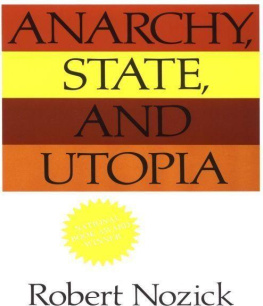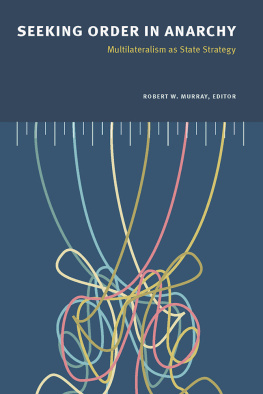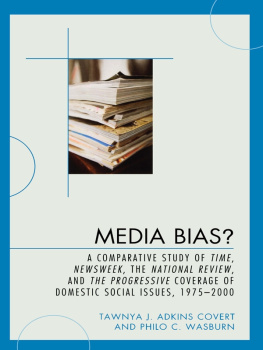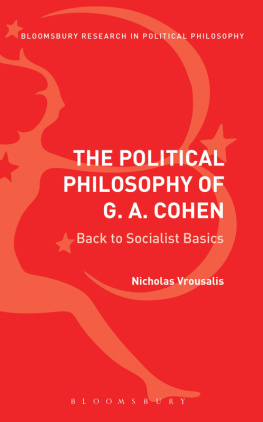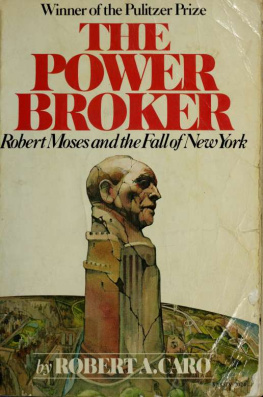Table of Contents
Material quoted from Lawrence Krader, Formation of the State. 1968, pp 21-22, reprinted by permission of Prentice-Hall, Inc., Englewood Cliffs, New Jersey.
Excerpts from A Theory of Justice by John Rawls are reprinted by permission of the publishers, Cambridge, Mass.: The Belknap Press of Harvard University Press and Oxford: The Clarendon Press, and are copyright 1971 by the President and Fellows of Harvard College.
Copyright 1974 by Basic Books, Inc.
Library of Congress Catalog Card Number. 73-91081
ISBN: 0-465-00270-6 (cloth) ISBN: 0-465-09720-0 (paper)
Printed in the United States of America
DESIGNED BY VINCENT TORRE
DHAD 02 03 04 05 49 48 47 46 45 44 43 42 41 40
PREFACE
INDIVIDUALS have rights, and there are things no person or group may do to them (without violating their rights). So strong and far-reaching are these rights that they raise the question of what, if anything, the state and its officials may do. How much room do individual rights leave for the state? The nature of the state, its legitimate functions and its justifications, if any, is the central concern of this book; a wide and diverse variety of topics intertwine in the course of our investigation.
Our main conclusions about the state are that a minimal state, limited to the narrow functions of protection against force, theft, fraud, enforcement of contracts, and so on, is justified; that any more extensive state will violate persons rights not to be forced to do certain things, and is unjustified; and that the minimal state is inspiring as well as right. Two noteworthy implications are that the state may not use its coercive apparatus for the purpose of getting some citizens to aid others, or in order to prohibit activities to people for their own good or protection.
Despite the fact that it is only coercive routes toward these goals that are excluded, while voluntary ones remain, many persons will reject our conclusions instantly, knowing they dont want to believe anything so apparently callous toward the needs and suffering of others. I know that reaction; it was mine when I first began to consider such views. With reluctance, I found myself becoming convinced of (as they are now often called) libertarian views, due to various considerations and arguments. This book contains little evidence of my earlier reluctance. Instead, it contains many of the considerations and arguments, which I present as forcefully as I can. Thereby, I run the risk of offending doubly: for the position expounded, and for the fact that I produce reasons to support this position.
My earlier reluctance is not present in this volume, because it has disappeared. Over time, I have grown accustomed to the views and their consequences, and I now see the political realm through them. (Should I say that they enable me to see through the political realm?) Since many of the people who take a similar position are narrow and rigid, and filled, paradoxically, with resentment at other freer ways of being, my now having natural responses which fit the theory puts me in some bad company. I do not welcome the fact that most people I know and respect disagree with me, having outgrown the not wholly admirable pleasure of irritating or dumbfounding people by producing strong reasons to support positions they dislike or even detest.
I write in the mode of much contemporary philosophical work in epistemology or metaphysics: there are elaborate arguments, claims rebutted by unlikely counterexamples, surprising theses, puzzles, abstract structural conditions, challenges to find another theory which fits a specified range of cases, startling conclusions, and so on. Though this makes for intellectual interest and excitement (I hope), some may feel that the truth about ethics and political philosophy is too serious and important to be obtained by such flashy tools. Nevertheless, it may be that correctness in ethics is not found in what we naturally think.
A codification of the received view or an explication of accepted principles need not use elaborate arguments. It is thought to be an objection to other views merely to point out that they conflict with the view which readers wish anyway to accept. But a view which differs from the readers cannot argue for itself merely by pointing out that the received view conflicts with it! Instead, it will have to subject the received view to the greatest intellectual testing and strain, via counterarguments, scrutiny of its presuppositions, and presentation of a range of possible situations where even its proponents are uncomfortable with its consequences.
Even the reader unconvinced by my arguments should find that, in the process of maintaining and supporting his view, he has clarified and deepened it. Moreover, I like to think, intellectual honesty demands that, occasionally at least, we go out of our way to confront strong arguments opposed to our views. How else are we to protect ourselves from continuing in error? It seems only fair to remind the reader that intellectual honesty has its dangers; arguments read perhaps at first in curious fascination may come to convince and even to seem natural and intuitive. Only the refusal to listen guarantees one against being ensnared by the truth.
The contents of this volume are its particular arguments; still, I can indicate further what is to come. Since I begin with a strong formulation of individual rights, I treat seriously the anarchist claim that in the course of maintaining its monopoly on the use of force and protecting everyone within a territory, the state must violate individuals rights and hence is intrinsically immoral. Against this claim, I argue that a state would arise from anarchy (as represented by Lockes state of nature) even though no one intended this or tried to bring it about, by a process which need not violate anyones rights. Pursuing this central argument of Part I leads through a diversity of issues; these include why moral views involve side constraints on action rather than merely being goal-directed, the treatment of animals, why it is so satisfying to explain complicated patterns as arising by processes in which no one intends them, the reasons why some actions are prohibited rather than allowed provided compensation is paid to their victims, the nonexistence of the deterrence theory of punishment, issues about prohibiting risky actions, Herbert Harts so-called principle of fairness, preemptive attack, and preventive detention. These issues and others are brought to bear in investigating the nature and moral legitimacy of the state and of anarchy.
Part I justifies the minimal state; Part II contends that no more extensive state can be justified. I proceed by arguing that a diversity of reasons which purport to justify a more extensive state, dont. Against the claim that such a state is justified in order to achieve or produce distributive justice among its citizens, I develop a theory of justice (the entitlement theory) which does not require any more extensive state, and use the apparatus of this theory to dissect and criticize other theories of distributive justice which do envisage a more extensive state, focusing especially on the recent powerful theory of John Rawls. Other reasons that some might think justify a more extensive state are criticized, including equality, envy, workers control, and Marxian theories of exploitation. (Readers who find Part I difficult should find Part II easier, with Chapter 8 easier than Chapter 7.) Part II closes with a hypothetical description of how a more extensive state might arise, a tale designed to make such a state quite unattractive. Even if the minimal state is the uniquely justifiable one, it may seem pale and unexciting, hardly something to inspire one or to present a goal worth fighting for. To assess this, I turn to that preeminently inspiring tradition of social thought, utopian theory, and argue that what can be saved from this tradition is precisely the structure of the minimal state. The argument involves a comparison of different methods of shaping a society, design devices and filter devices, and the presentation of a model which invites application of the mathematical economists notion of the core of an economy.


